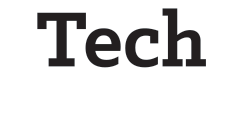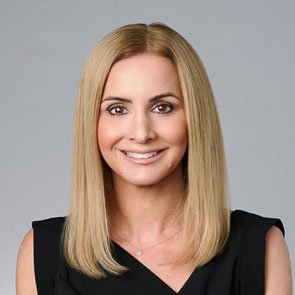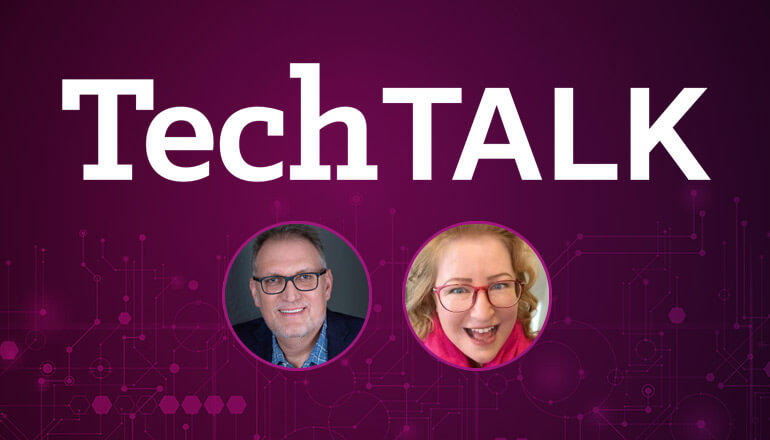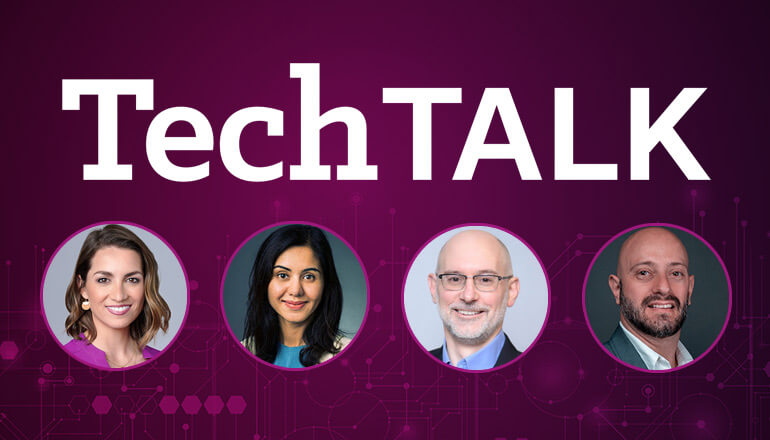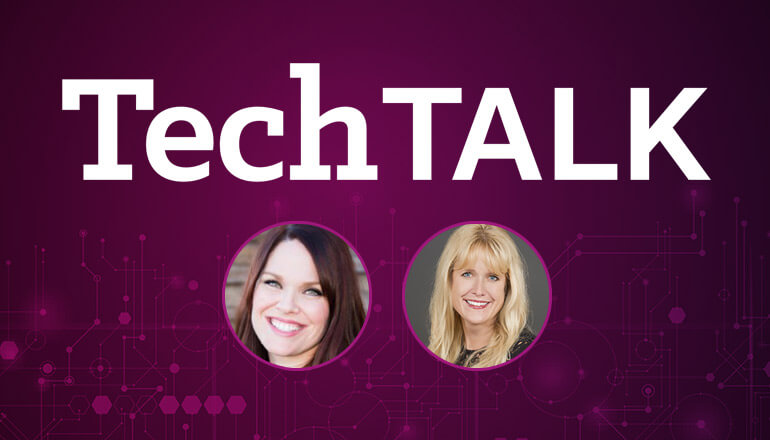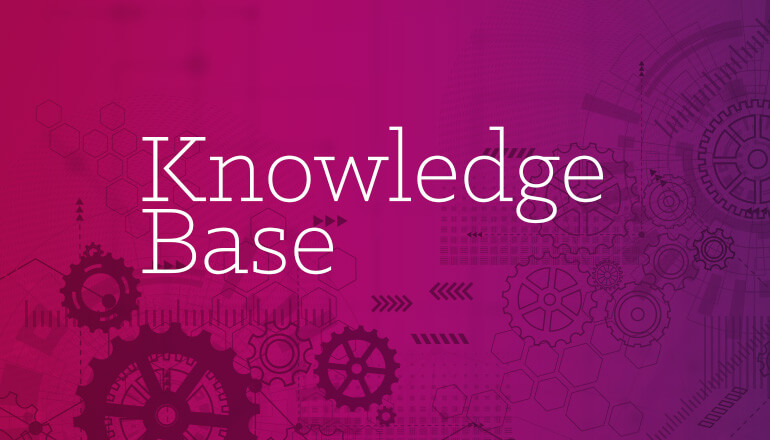Audio transcript:
Sustainable IT: A Vision for Tomorrow with Insight and Dell Technologies
Published October 1, 2020
MEGAN
Hello, thank you for joining us for another Insight TechTalk. I'm Megan Amdahl senior vice president of operations at Insight. And joining me today is David Lear vice president of sustainability with Dell Technologies.
David, I'm so excited to have this conversation with you today on sustainability, because we both know Dell is seriously a leader in this space. But before we jump in, I think it's first important that we highlight for a quick moment, why corporate social responsibility programs are important and really all companies should be building out a corporate social responsibility program.
And it isn't just because it's the right thing to do. A really well-run CSR program can do so many things for our company. It can give a client a reason to try the company for the first time. It can increase customer loyalty, build your brand reputation. We know all of those things are incredibly important in terms of building revenue growth. And then a really thought through CSR program should also be driving out costs from the organization as you get operational efficiencies. And so I would say, if you're going to say it's successful, a good CSR program achieved all of these things.
And then we both know at the heart of a CSR program is the sustainability initiatives. And so that's what we want to center the conversation around today. And what I wanted to talk to you about first…my first question for you is…can you give me an idea, we know Dell is completely dedicated to improving the planet and humankind through these initiatives through 2030. Can you give me what the real goals are of the Progress Made Real initiative?
DAVID
Hey, absolutely and thanks for having me today.
Let me start by saying at Dell, I mean, we're very similar to Insight in that we’re tech optimists. We think technology just makes us hopeful for what the future can bring. I think together working with our shared customers, it's just what we can do.
We're seeing technology positively transform the planet, transform society, social issues, educational health, especially now like never before, during the time of COVID. Computing power today…AI…IoT…help people do what seemed like science fiction just a few years ago.
So, with Dell some of our very first designs over 35 years ago really integrated these concepts of upgradability and serviceability, recyclability. And as a result of that, it really got us thinking about, “how do we work with our customers and be a real student of our products through the years.”
So, 10 years ago we set goals around sustainability for the year 2020. And we really focused on at the time, what mattered to customers, governments, investors. And so as we approached 2020 last year, you know, we saw number one, we were accomplishing these goals and actually over accomplishing many of them.
We also realized we're kind of living in a new world. Technology has changed. Our company has changed…kind of, our suppliers, our customers’ expectations have changed.
So, we really took kind of a massive amount of input from our customers, investors, NGOs, governments. We even went as far as to survey 150,000 of our employees to really understand what role should Dell play. And we really brought all this stakeholder feedback together to understand, sort of, “what did we want to do?”
This was the foundation of what we call Progress Made Real 2030 plan. And this is really kind of the next set of roles we've set for the company. We really set these goals around a broad scope of work around social impact pillars, which includes sustainability, diversity and inclusion, philanthropy, community engagement, ethics and privacy.
So today, I'm going to talk specifically about sustainability and in this area, we did what we call moonshot goals. In fact, we have a moonshot goal in almost every area, and this is really designed to be kind of a call of action, not just to our team members, but also to get our partners, our customers, our suppliers, kind of all rally together to help us meet those goals because it's a 10-year goal.
And some of these moonshot goals include something like…one of them is a one for one product, take back commitment. So, for every product we sell, we want to take one back and commit to recycling or refurbishing it and extending the life of it. We've also committed to 100% of our packaging will be made from recycled or renewable materials. We've also set goals for 50% of our product materials to be made from recycled content. And we've also set goals around energy efficiency for our products, for our own operations and then for our suppliers.
We think all of these are really important to set these goals around renewable energy, around product energy efficiency, because they really kind of by setting our targets, they also help our customers anticipate how they can set their targets.
MEGAN
I love the moonshot goal concept, right? I mean, way to come out and inspire people to rally around such an important cause.
One thing that stood out to me a lot in reading this past year is it seems like more companies than ever before have jumped on and said corporate social responsibility, definitely sustainability is a critical initiative for them.
Why do you think it's made such progress this year?
DAVID
You know, I think there's a growing list of stakeholders that are demanding performance in these areas. In fact, I think we've seen a surge over the last two or three years, and I would go beyond customers, I would say we're seeing a surge in investors. We've seen a surge in NGOs, governments, industry analysts, channel partners, like yourself, and of course employees.
So, customers want to work with responsible partners. You know, they want to work with customers who really understand the entire life cycle impact of the product to really understand deep into the supply chain and deep into the full product life cycle. And, so, I think that's one thing that our customers are asking is we want to work with a partner who can help us meet our own sustainability goals.
We have customers now that are asking us as part of their own carbon emissions accounting. They want to know not just the carbon footprint, but they also want to know details right now to how much carbon is associated with logistics and delivery of the products that are backed up.
So, we're really seeing customers want to see much more transparency and visibility into how the products have made the resources, the content investors want to know that they're working with companies, we're managing risk and also anticipating opportunity in the future and that's a major stakeholder for us.
Governments want to work with companies that drive thought leadership. And they're even partnering with these companies as they set the bar for future performance standards and energy efficiency, recyclability, and product safety.
Employees, and I'll emphasize employees. They want to work for a company with strong principles and integrity. Companies that give them kind of the opportunity to give back to society, volunteer their time, their skills to drive a social impact. And it's not just the college graduates. I mean, we're seeing this at all levels from entry level to tenured executives that they want to partner with a company that can give them a chance to have a social impact and sociality.
And so I would say that there's such a growing broad spectrum of stakeholders who are just demanding is from companies today.
MEGAN
You know, what stood out to me about Dell is not only are you doing all the things you just said. But, I've also read about how you're partnering with your competition on technologies that you've adopted that could be impactful to the environment. I mean, huge, huge, kudos to being bigger and rising up to the real issues of the time.
So, Insight has a focus in this area…in sustainability as well…we have multiple initiatives around sustainability. But one that I just want to highlight that I think is really important is we have a program…you mentioned it…Dell does have a similar program…and I think they're just incredibly important between our two companies…we are putting out a massive amount of IT equipment to our end user clients. And one of the best things that we could do for the environment is extend the life of those assets as long as possible. So, Insight has created a sustainability life cycle centers. And the whole purpose is we have hired experts that are able to take our clients, used IT equipment…refurbish it, enhance it, upgrade it and then we give our clients, you know, really three simple choices.
One is it's repaired, it's ready to go back out into your own business, to your end users, or do you want us help remarket it on your behalf? You can send it to another company. You can make some financial profit on the sale of those used assets. Or third, my favorite option, is when our clients decide to give them for charitable reasons and charitable organizations. And, we help facilitate that as well.
So, my next question for you kind of leading on to my favorite part about that program is how has Dell really been able to combine your sustainability efforts with charitable giving?
DAVID
Yeah, and I think there's just a huge opportunity coming as we go forward on, on how companies can align with nonprofits to take their best people, their best resources to take technology and really have an impact.
So I want to give you one example. It's a little bit different, but a non-traditional, but yet it's one I'm really proud of because it really allowed us not only to reach out to nonprofits, but also to reach out to other industries and competitors to really make a difference.
So, a few years ago we were approached by a nonprofit called the Lonely Whale Foundation. So, Lonely Whale Foundation was focused on research to understand ocean pollution.
So, I guess your first question is why would Dell care about ocean pollution?
Well, the fact is they approached us regarding our materials because Dell has a long history of finding really innovative environmental friendly materials to put into our products and to our packaging. We'd use things like mushroom or bamboo or wheat straw taking agricultural waste and putting it back in the product. So, they approached us because we had done some of this great technology.
And they said, "Hey, we're trying to clean up the ocean. You guys are working with innovative materials. Can we somehow figure out how to pull our programs together?"
So, we basically developed some neat technologies that we're able to recycle these materials from the ocean. We actually did some feasibility work working with a nonprofit in Haiti and also Lonely Whale Foundation. And we were actually able to test some of these waste that they were able to pull out of the ocean and we put them into one of our product lines.
So, we actually, what we call a pilot, we probably were able to ship over 400,000 products just with the pilot batch that we did. We were successful. We also saw an opportunity here to really potentially scale it and possibly even saved money. For us that was like the ultimate. If we can help the environment, you know, working with nonprofits, if we could serve our customers better and at the same time, either save money or at least reach cost parodies.
So, Dell and the Lonely Whale Foundation created a new nonprofit called Next Wave. And so Next Wave was created specifically to promote the use of ocean plastics. So a lot of our work was done in Haiti and by working with Next Wave, what we wanted to do is recruit other companies, other industries to come in and see if we could take Dell's technology and make it an open source…and provide it…and make it available to everybody else.
And between all of us, we could create enough use cases that we could actually drive the demand. And by driving those demand, we would actually support the development of a global supply chain, and that's kind of what we did.
We were able to convince GM, IKEA, Trek Bicycle, Herman Miller, and a few others to come together and start this nonprofit. And so, the goal was to share technology scale way beyond what Dell to do alone. In fact, we even were able to convince one of our competitors to come in just last year. And again, we think that's good because we think that the more people are involved, it's going to make this material more available to more companies at a cheaper price and at the same time, we think it's going to clean up the ocean and create a lot of new jobs.
So, for us that's the ultimate. Is when we can take this focus, we can scale it and we can really drive change. And it's what I call the triple bottom line where we can serve society, we can serve our customers and we can serve Dell all at the same time.
MEGAN
That's awesome. And I mean, it's using Dell scale for such good. I mean, you know, when you say we did a pilot and it was 400,000 test cases, it's just incredible. And also, I think it's just really phenomenal how many different ways that you guys are looking at how you can have impact.
So today, David, I think we learned a lot. The innovation that Dell is bringing forward is impressive. The amount of companies and even competitors that you have joining in this, is something for us all to take note of and it's inspirational. And so, thank you so much for joining us today and sharing what Dell is doing to improve the environment humankind into 2030.
So to learn more about Insight and Dell's commitment to creating a positive impact, go to insight.com/sustainableIT. Thank you all for joining us today and a special thank you to David.
DAVID
Thank you, guys.
[Music]
